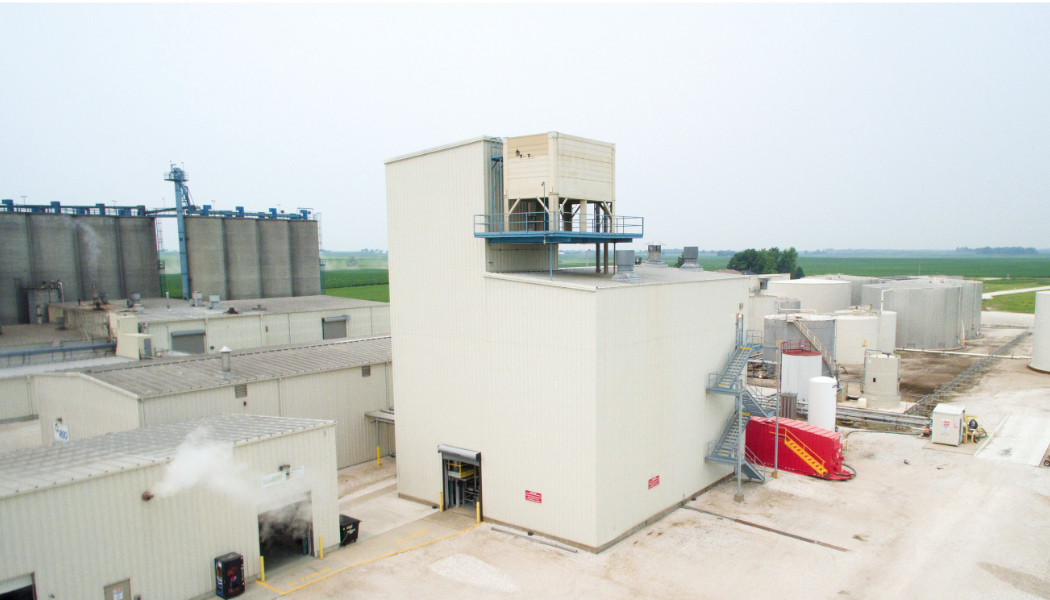As biodiesel blends continue to expand – commonly B20, now up to B100 – ensuring blends meet high-quality standards has never been more important for operators everywhere. In this article, Chevron principal biofuels scientist David Slade explains five key factors that reinforce the importance of high-quality biofuel blends.
1. High-quality biofuel can help improve performance
Slade said it’s no secret that a high-quality fuel will provide all-around benefits to an engine, starting with how it is produced. When a biofuel goes through a thorough and refined production process, it removes impurities that may otherwise leave behind debris that can clog filters or could lead to injector deposits. The additional lubricity found in biofuels can also add to engine life.
When high-quality fuel is used across the entire fleet, Slade said operators can typically expect to see consistent performance, whether it’s an on-road vehicle or a heavy-duty piece of equipment, as biodiesel can be a direct replacement for petroleum diesel. The addition of biodiesel to your fleet can also be a cost-effective measure, as it has the potential for reduced machine maintenance and down time.
2. Cloud point isn’t the whole story
“For biodiesel, cloud point relates to the type of feedstock used, not to the quality of the fuel,” Slade said. “But cloud point can be more important for renewable diesel than biodiesel because renewable diesel is often used as a neat fuel.”
Slade said there are other tests, such as a Cold Soak Filtration Test or a Cold Filter Plugging Point – or CFPP – that may be better indicators for cold weather performance. Additionally, proper fuel storage and handling, fuel testing, and tank hygiene maintenance can go a long way in preventing cold weather-related issues.
3. Impurities can make a big impact
Quality becomes even more important as blend levels increase. Slade noted that low blends, such as B5 to B20, may have lower levels of impurities and are less likely to cause vehicle issues. But higher blends, such as B30 and up, are much more sensitive to impurities.
4. Impurities come in many forms
Produced in sterile conditions, bio-diesel’s production process virtually eliminates any potential microbial or bacterial presence. Like most things, Slade noted, monitoring fuel tank conditions and tank hygiene maintenance can aid in ensuring there is no free-standing water or leaks that may lead to microbial growth and impurities within the fuel.
For operators who store biodiesel in idle equipment for longer than six months, the National Renewable Energy Lab announced additional stability additives can be added after fuel is purchased to re-stabilize biodiesel or biodiesel blends.
5. Fuel testing can help reinforce quality
Likely the best way to ensure a product is up to standard is by testing, and fuel is no exception. Regular testing, whether by a third party in a lab or on your own, can help operators ensure their biodiesel fuel is the best quality for the fleet. A few things testing will look for:
- Detection of filter-plugging impurities
- Cold weather performance issues
- Monitoring oxidation stability for any long-term storage needs
- Ensure consistency across deliveries
Additional Ways to Test
Chevron normally offers free sample testing for bio-based diesel fuel, regardless of where the fuel was purchased. This testing1 offers detailed insight into the makeup and composition of the biofuel, including any impurities that may be affecting your engine and/or filter.
Easy, in-field testing includes taking a fuel sample from the bottom of the storage tank and observing it for sediment, water, or anything unusual. Your eyes can be as helpful as any fancy laboratory tests. Another on-site test is placing a fuel sample within a fridge or freezer to see if it gels or crystallizes at those temperatures. This will give you an idea of how cold your fuel can get before potential filter plugging issues might start. Then, observe what it looks like after it warms back up – that can also provide valuable insights to your fuel’s quality. Always use safe and recommended handling techniques with any substance.
Quality From The Start
“It’s important to be able to go back to the original fuel properties that you can get from a certificate of analysis and know what you’re buying,” Slade said. “If someone tells you it’s renewable diesel, don’t assume it’s low cloud point, winter-grade renewable diesel. Make sure you know what the cloud point is. If you purchase biodiesel, make sure you know the quality properties of the biodiesel and you know those things in advance because you won’t get that if you’re buying blended fuel from people or buying it from a reseller – it will be hard to find out those things. It does take a little bit of information gathering and question asking. Or you can buy it from someone who can easily validate that information.”
Dave Slade is a principal biofuels scientist at Chevron Renewable Energy Group. He can be reached at dave.slade@chevron.com.
1 Testing resources can be limited from time to time and are subject to availability


